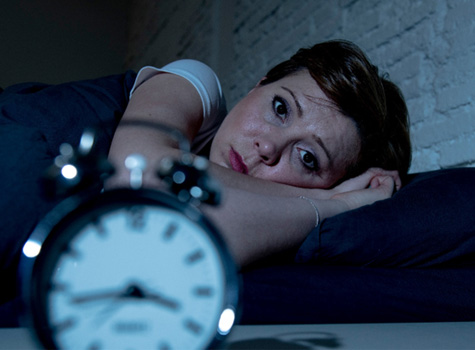Insomnia Treatment – Dallas, TX
Helping You Fall Asleep

Insomnia develops in one of every four Americans each year, but despite its prevalence among the general population, insomnia in Dallas continues to be vastly underdiagnosed. As explained in a 2016 study, patients should be screened for insomnia consistently as they get older, as aging is commonly associated with insomnia symptoms. And while aging is a very broad risk factor, screening is important to diagnosing and tackling insomnia because 27% of individuals don’t even realize they have the condition. If you are struggling to fall asleep and want answers, call our office today to schedule an appointment with one of our Star Sleep & Wellness experts.
What is Insomnia?

Insomnia is a type of sleep disorder that involves patients being unable to fall asleep or stay asleep. There are two types – short-term and chronic – that can result in chronic fatigue, daytime sleepiness, the inability to concentrate, and mood changes. With short-term insomnia, patients suffer symptoms for roughly three months with symptoms dissipating over time, but chronic insomnia can last for several years with symptoms occurring up to three times a week.
Symptoms of Insomnia

Insomnia can be experienced in three degrees of severity: mild, moderate, or severe. Insomniacs on the milder side of the spectrum may not experience a significant impact on their social functioning or work productivity, but as the severity increases, insomniacs can become crippled by the condition.
Mild insomniacs report receiving inconsistent sleep—they may get great sleep for a few days and then fall into a bout of restless sleep, which brings on the following symptoms:
- Restlessness
- Irritability
- Mild anxiety
- Daytime fatigue
- Consistent tiredness
For insomniacs who suffer from moderate or severe insomnia, the issue is obvious because they experience a significant impact on their personal and professional lives. Those with moderate to severe insomnia experience all of the above symptoms but to a more severe degree.
Moderate insomniacs report rarely experiencing a good night’s rest and can feel the impacts of sleep deprivation in all aspects of their lives.
Severe insomniacs may feel completely suffocated by this disorder. Apart from having trouble sleeping every night, they often experience noticeable differences in their ability to maintain relationships and stay on top of their work duties.
What Causes Insomnia?

This condition can be broken down into primary (acute) and secondary insomnia. Acute insomnia is often caused by a stressful event or relationship, a change in a person’s work schedule (i.e., night shift vs. day shifts), poor lighting or loud noises in a particular sleeping environment, or medications that are designed to treat depression, allergies, high blood pressure, or asthma. It’s also possible for individuals with poor lifestyle habits (i.e., too much caffeine, frequent alcohol consumption, or smoking) to develop acute insomnia.
Secondary insomnia, however, can often be attributed to an underlying medical condition such as depression, anxiety, chronic pain, stress, diabetes, and even cancer.
Consequences of Insomnia

Individuals who suffer from insomnia may think the only aspect of their lives being affected is their ability to achieve adequate sleep, but the reality is there are far more consequences surrounding this condition if left untreated.
Some of these include:
- The inability to react in a timely manner when driving
- Poor work or school performance
- The risk of developing mental health disorders such as anxiety, substance abuse addiction, and depression
- The potential for longer-lasting medical conditions that can wreak havoc on a person’s overall health and well-being
Diagnosing & Treating Insomnia

Diagnosing insomnia involves calling our Star Sleep & Wellness office and scheduling an appointment. We will evaluate your symptoms to determine if you are suffering from any of the symptoms associated with insomnia. If a sleep study is necessary, one will be recommended; however, if one has already been completed, the next step is to identify the underlying cause(s) of your insomnia.
Once a reason has been identified, we will create a plan to help reduce and/or eliminate symptoms, helping you to get the sleep you need. Some effective treatment options include basic changes such as:
- Eliminating naps throughout the day
- Exercising earlier in the day
- Avoiding screens before bed (i.e., phones, televisions, tablets)
It can also mean discussing the potential use of herbal supplements to help improve sleep patterns. If more serious insomnia exists, our sleep experts near you might recommend:
- Relaxation Therapy, which means reducing stress and anxiety at night.
- Cognitive Therapy, which helps to eliminate negative thoughts as it pertains to sleep.
- Stimulus Control Therapy, which is the process of rethinking how you view your bedroom and its purpose for sleep.
No matter the type of therapy or treatment recommended, the process involves discussing your medical history, current medications, and lifestyle habits. Based on our findings, We will generate a comprehensive plan to target these issues and help you regain a better quality of life.
If you’re ready to take that next step to regain control of your sleep, click here to make your appointment.
